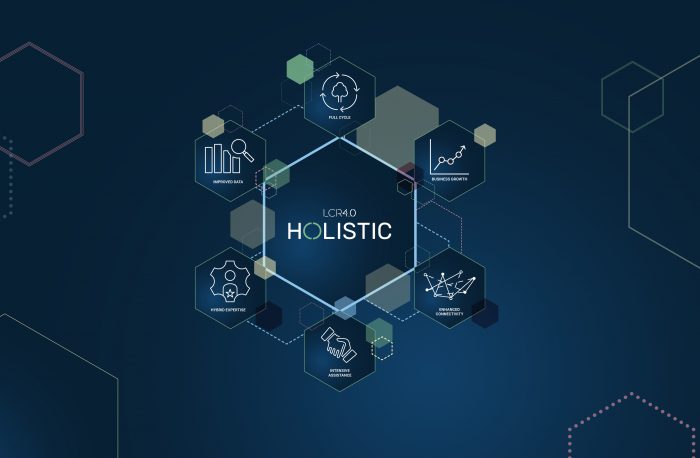UK Heritage leaders unite to adopt Deep Tech as a driver for levelling up through digital heritage

On the 14th June 2022 the Virtual Engineering Centre launched our partnership and unique strategic initiative with St George’s Hall’s Trust, as we aim to establish the Liverpool City Region as a leader in digital heritage.
Digital heritage is the use of digital technology to improve the understanding and preservation of cultural or natural heritage. The partnership will connect the city region’s heritage assets with local SME tech providers, manufacturers, and start-ups.
The VEC’s digital transformation expertise will develop a digital heritage ecosystem to revolutionise Liverpool’s heritage economy and create new supply chains that will make Liverpool a world leader in digital heritage.
The Digital Heritage Symposium brought together a variety of guests and attendees including technical experts across local SMEs and businesses, architects, theatres, local council members, academics from University departments such as Archaeology, Classics and Egyptology, charities, and even Lord Mayor, Cllr Roy Gladden.
“We need to think of digital as a way for us to level up and innovate… It’s not about tech, it’s about meaning and finding value.” – Andrew Borland of Virtual Engineering Centre (VEC)
Presenters and speakers included:
- Garry Millar, President of Liverpool China Partnership and former Lord Mayor of Liverpool
- Cllr Harry Doyle, Assistant Mayor & Cabinet Member for Culture & Visitor Economy
- Jayne Moore of Jayne Moore Media
- Andrew Borland, Head of Commercialisation at the Virtual Engineering Centre
- Professor Elizabeth Maitland, University of Liverpool and Trustee
- Maggie Mullan, Principle at MMA
- Alan Smith, Head of Heritage Preservation and Development for Liverpool City Council
The event sought to explore key themes including how we can build a leading digital heritage community for better facilitating remote awareness and accessibility through the cloud and virtual tours, improving education through immersive experiences and enhanced interactivity and engagement in addition to the advantages of digital twin technology and sensors for building monitoring for developing greater sustainability.
“We want to become a hub of innovation.. we want to create a foundry with the support of the Virtual Engineering Centre (VEC) where businesses can build…this can then feedback into our communities.” – Professor Elizabeth Maitland, Trustee
The presentations were shortly followed by multiple panels to explore the challenges and solutions for better preserving and promoting heritage sites and assets across the Liverpool City Region and which technologies can support this including AI and blockchain. Some of our panellists included Gazooky Studios, the Brain Charity and Chataway.
The Technology Showcase then highlighted and brought to life the opportunities that lie ahead in collaboration from a multitude of local SMEs, focusing on an array of different themes and topics. Some of the demonstrators included:
- Vaadhoo Media – Virtual tour creation, immersive tours and commercial photography
- Vizbox Sensory – VR and multisensory experiences
- Draw and Code – Mixed reality experiences
- Gazooky Studios – Co-developers of The History Whispererexperience
- BBloock – Introducing blockchain technology for supporting heritage
The Virtual Engineering Centre also introduced technology for creating and developing conversational avatar, showcased our 360-degree imagery capture of the beautiful Great Hall within St George’s Hall and how data mapping can be utilised for identifying heritage assets across the city and how these can drive change for combating deprivation across Liverpool.
“The aim is to link the heritage and cultural assets of the city with a variety of indices of deprivation. These can be challenged through ‘cultural beacons’.” – Alan Smith, Head of Heritage Preservation and Development for Liverpool City Council
The event closed with a Thought Leadership Forum where speakers urged attendees to consider what they can do to support the digital heritage concept and what needs to happen. Speakers included Cllr Harry Doyle, Alan Smith, Jamie Coath and Maggie Mullan, hosted by Elizabeth Maitland.
Following on from the event, the Virtual Engineering Centre and the St George’s Hall Trust will be launching a Digital Heritage Strategy for the city region. The strategy will focus on the themes of heritage preservation, the promotion of its value, lessons to new generations, and the progression of history as a driver for inclusion, education and enterprise.
Speakers also introduced the idea of a Digital Heritage Foundry to be located at St George’s Hall, and will be a first-of-its-kind hub to fast-track R&D in the heritage sector and grow a dynamic new supply chain with the help of the ERDF-funded LCR4.0 Holistic project. The Foundry, which replicates an established model of collaboration from Silicon Valley, will offer local businesses and SMEs access to immersive, sensor, robotic, and simulation technologies and support from VEC’s digital engineers.
“When you look at the importance of our heritage, this is a pathway for others to get pleasure from this…This is important to me.” – Lord Mayor of Liverpool, Cllr Roy Gladden
Click here for the downloadable Digital Heritage Brochure
The Digital Heritage Symposium was delivered by LCR4.0 Holistic, a European Regional Development Funded project which aims to deliver the first Liverpool City Region wide digital supply chain ecosystem for SMEs.
If you would like to get involved and find out more about anything highlighted at the event, including the Heritage Foundry and the offering of LCR4.0 Holistic through the Virtual Engineering Centre, please get in touch:
- vec@liverpool.ac.uk
- 01925 864 854
Explore more

Blog: 5 Digital Trends for 2023
As we enter another year, the VEC looks ahead at our digital technology predictions for…

LCR4.0 Holistic supports over 50% more start-ups as a catalyst for Business Growth and Innovation
Since launching in the summer of 2020, LCR4.0 Holistic has been making great strides in…

LCR4.0 generates over £121m in GVA as it drives innovation and economic growth for SMEs in the LCR and beyond
LCR4.0 was an ERDF-funded initiative (European Regional Development Fund), driving the growth of the manufacturing…